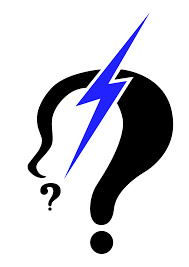About Aphasia
What Is Aphasia?
Aphasia is a language difficulty caused by injury to the brain. It affects communication. People with aphasia may have difficulty with:
- Speaking
- Understanding what others are saying
- Reading
- Writing
- Spelling
- Using numbers
- Using gestures
Aphasia may affect:
- Everyday communication
- Relationships
- Everyday living
What Causes Aphasia?
Aphasia can occur with events that affect the areas of the brain that are important for language.
These may include a stroke, brain tumour, head injury or brain infection.
In rare cases, a person may have a primary progressive aphasia caused by a neurodegenerative disease. This is a slowly worsening aphasia.
Aphasia Facts & Tips:
- Aphasia affects people differently.
- Aphasia can differ in severity:
- Aphasia can be severe and make communication very difficult.
- Aphasia can be mild. Someone with a mild aphasia may only have difficulty communicating the names of things.
- Aphasia disrupts language and communication. Aphasia does not mean loss of intelligence, thoughts or memory.
- Aphasia does not change a person’s character; their fundamental preferences and personality remain the same.
- People with aphasia can still make decisions and solve problems.
- People with aphasia can still hear and see.
- People with aphasia often know what they want to say but have difficulty getting their messages in and out.
- People with aphasia may also experience other communication impairments as a result of injury to the brain. This may include:
- Apraxia of speech: a speech disorder that makes it difficult to move the mouth in the way needed to produce sounds and words.
- Dysarthria: weakness in the muscles used for speech, which often causes slowed or slurred speech.
- Cognitive-Communication Disorder: an impairment in organisation/thought organisation, sequencing, attention, memory, planning, problem-solving, and safety awareness.
- Talking and communication may be difficult or different. Practise the strategies that the Speech Pathologist has taught you. For some people this comes naturally, but for most they really need time and practice to work out what works best.
- Communication is not just about talking. Communication involves body language, facial expression, gesture, intonation in the voice, pointing, sharing, reading, writing and doing things together. A person with aphasia may not speak a message clearly or accurately but can still convey a message effectively in other ways. Sometimes a look can "say a thousand words”, or pointing and gesturing can convey a message.
- People with aphasia may find they cannot concentrate for long, and need more rest or sleep. They may fatigue more easily. Noisy environments can also make it hard to talk and concentrate. Communicating can be tiring.
- Allow extra time for everyday activities.
- Remember aphasia recovery can be slow. Improvements in language, and changes and adjustments with effective communication can continue for years. Evidence suggests that neural pathways in the brain can continue to make new connections even after a stroke or brain injury.
Useful External Resources
The following resources and organisations can provide you with additional information and support. Further external links are available within the "Research & Useful Links" web page or if you have specific questions you require support with please get in touch with Aphasia SA via the contact page.

Enable Me: Speech And Language Resources
The Stroke Foundation owns and manages the Enable Me website which contains many resources for the Australian stroke community. The below link will take you to the speech and languages resources page. The Enable Me website is also available in an Aphasia Friendly format.

Aphasia Therapy Online
Free online aphasia therapy, created by a Melbourne Speech Pathologist. Aphasia Therapy Online is easy to use, has excellent features and is available in multiple languages.

Getting Online For People With Aphasia
The UK Stroke Association has made a free guide to help people with aphasia get online and use technology successfully. It contains 14 sections that you can work through at your own pace.

TalkPath News
TalkPath is a news resource for people who need help reading, listening or understanding the daily news. News articles are read aloud and highlighted to help people follow along. At the end of each the article there are a series of questions to test the user's understanding. New articles are added every weekday to help people stay up to date with current events. TalkPath is available for free online or via the App Store.

SmallTalk Free Apps
The SmallTalk family of apps offer daily communication and video speech exercises that are designed for people with aphasia, apraxia, or dysphagia. They can be downloaded on the App Store.

Aphasia Software Finder
This website has information about apps and software programs in the English language for people with aphasia.